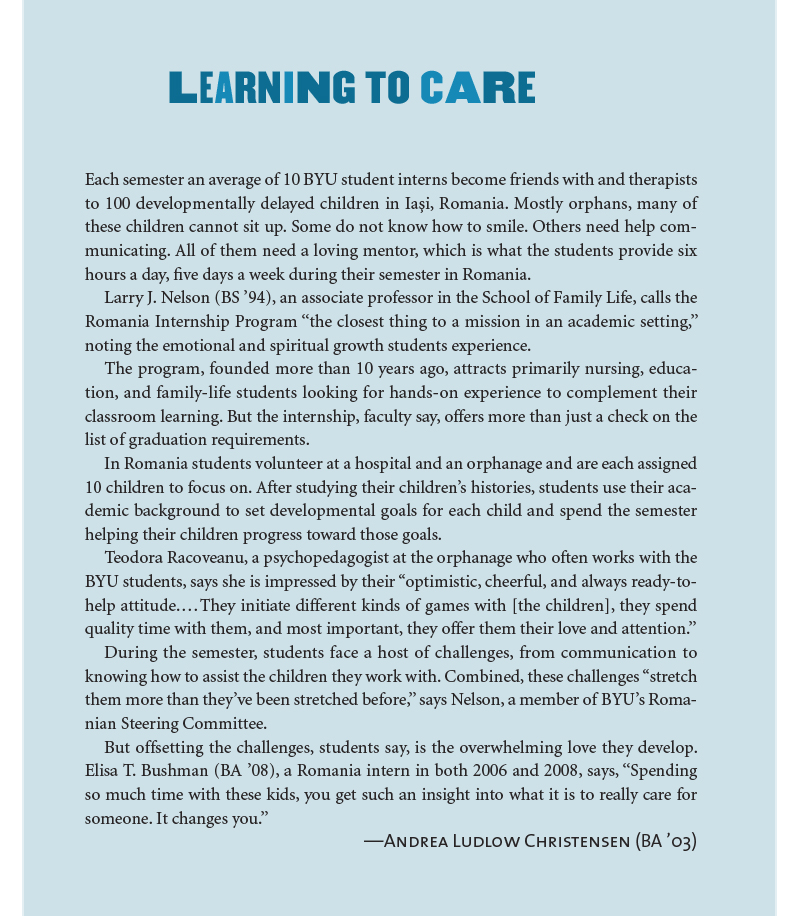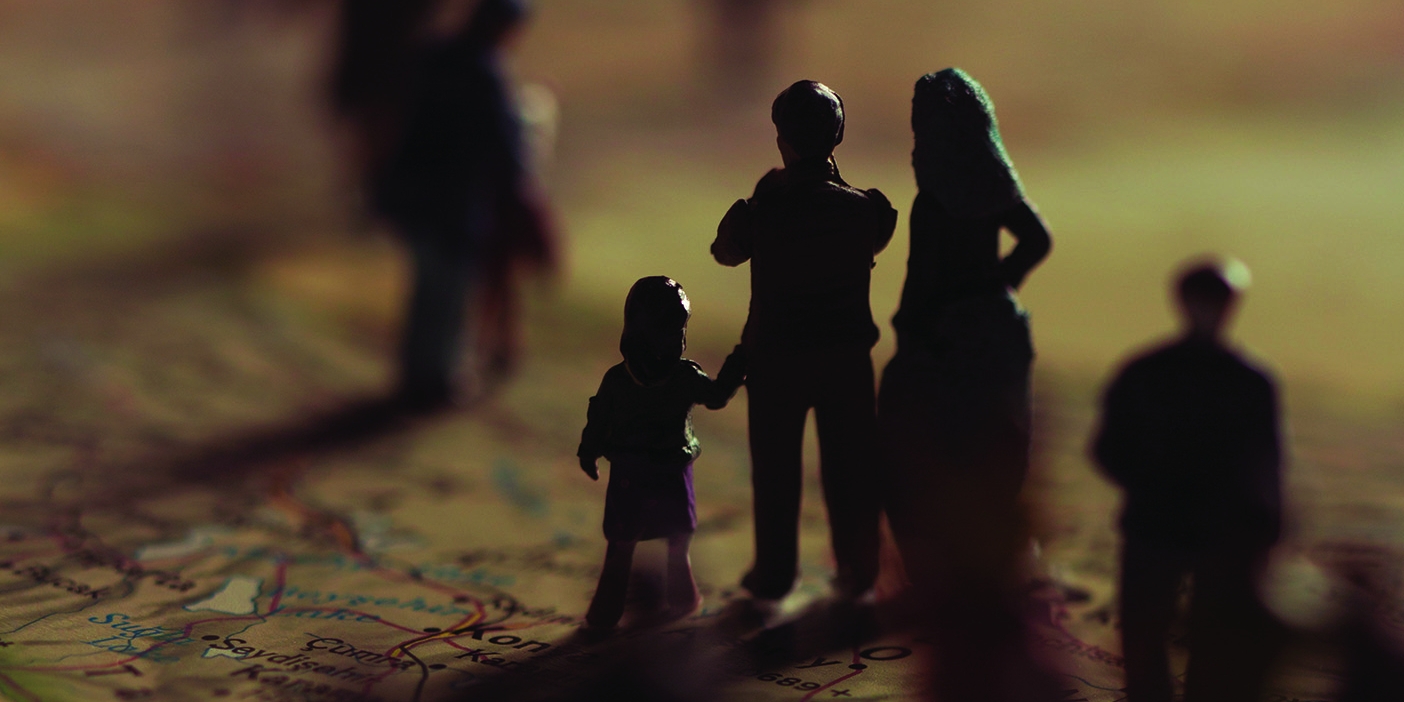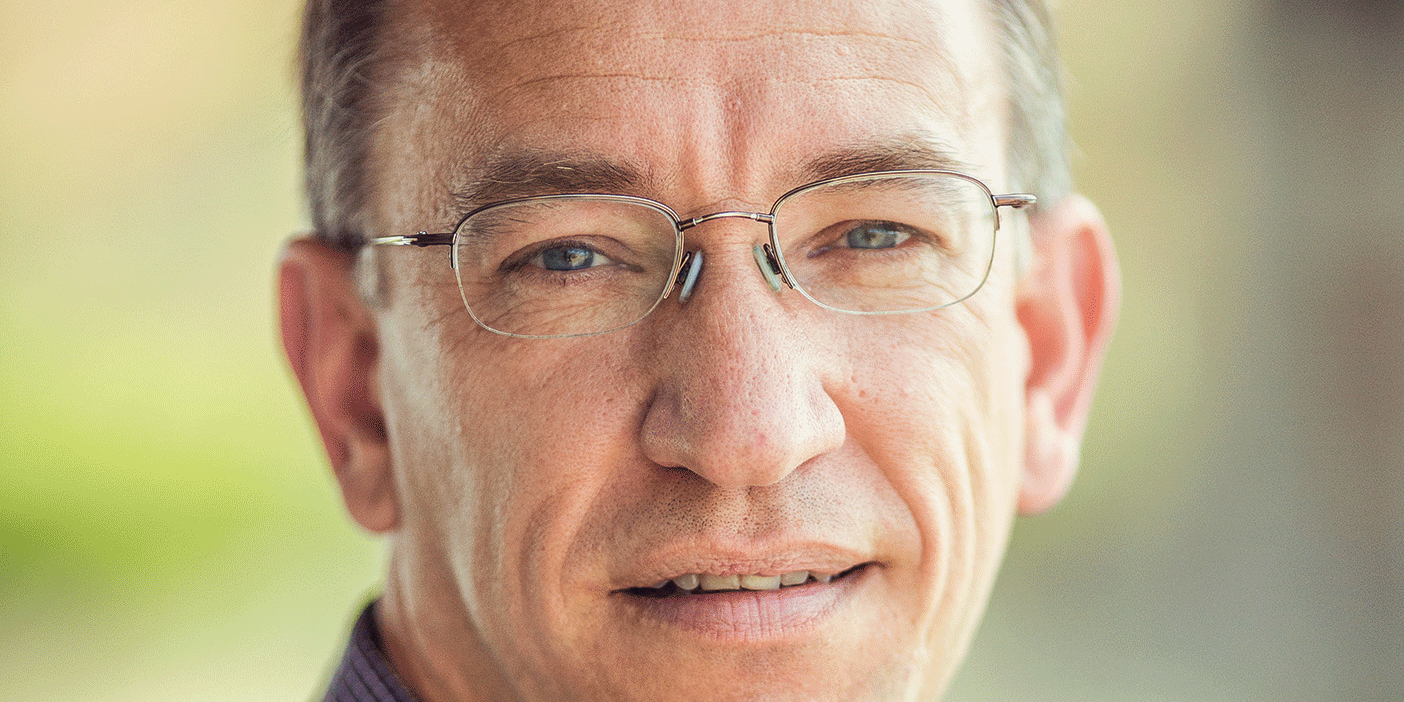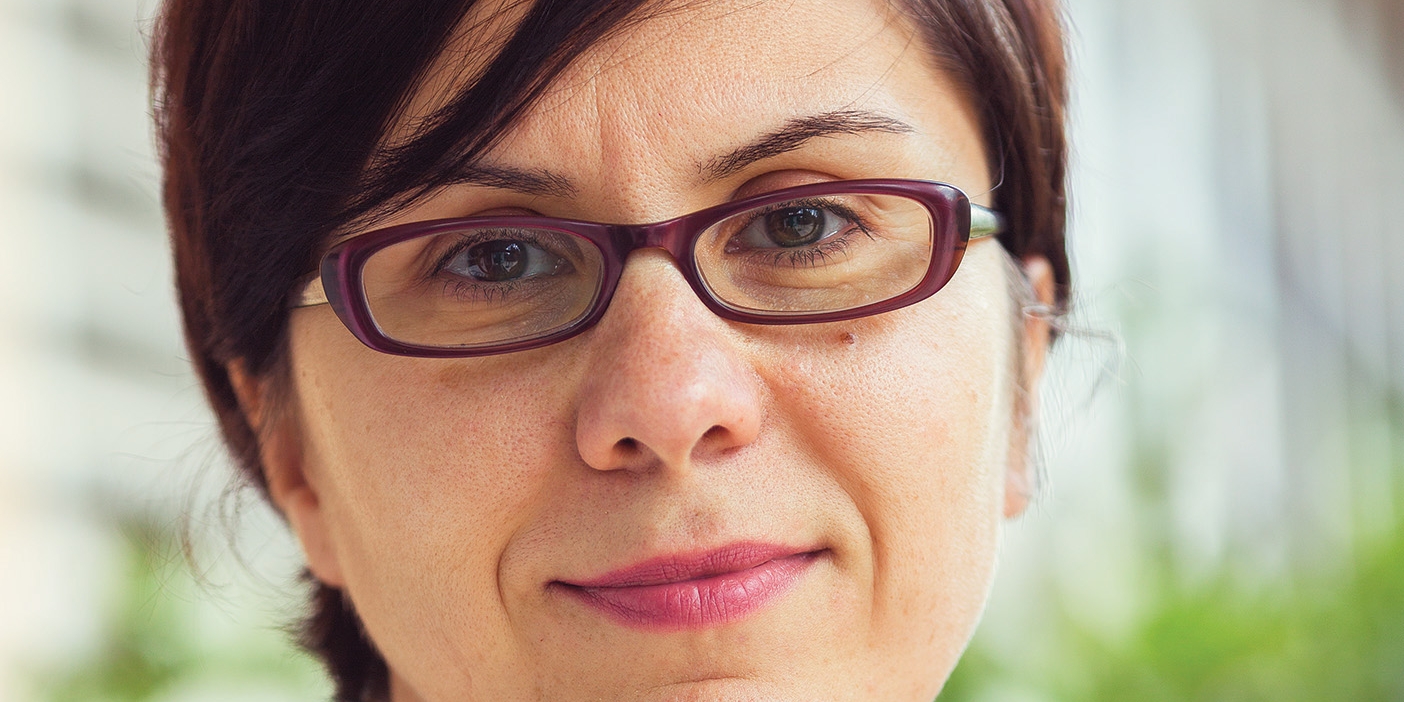A Gift for Marius
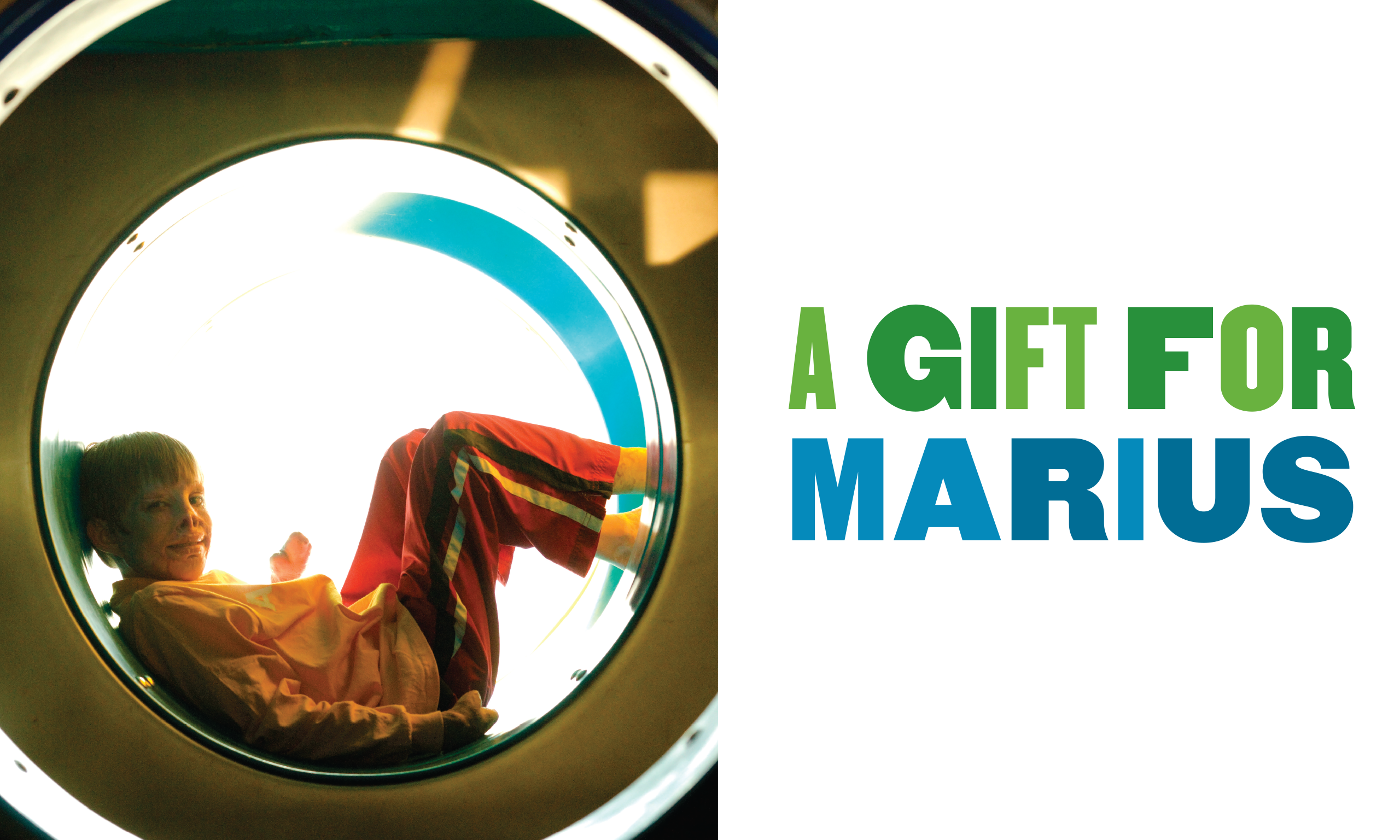
While working in a Romanian hospital, BYU interns see a need and change a life.
By Andrea Ludlow Christensen (BA ’03, MA ’05) in the Spring 2009 Issue
Bradley H. Slade (BFA ’94)
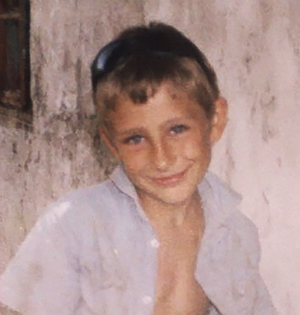
Marius Dasianu, a carefree 8-year-old with sandy-blond hair, clear eyes, and a toothy smile, lived in the village of Ciuresti, Romania. He liked the sorts of things 8-year-old boys like—running around with his fluffy white dog, helping his mom around the farmhouse, and playing soccer with the village boys.
But on the night of Dec. 7, 2007, after Marius had gone to bed, the life he knew would change forever when a boiler exploded—apparently from a fire intentionally started by Marius’s intoxicated father. All he remembers is awaking to find his clothes on fire and jumping from his first-story window. Neighbors called paramedics, and Marius was transferred in critical condition to the Sfanta Maria Hospital in Iaşi, Romania.
Marius’ brother, Ionut, who had been working in Italy, arrived at the hospital two days later to find both of his parents dead and Marius—almost completely covered in bandages—in a coma. Marius had severe burns over 75 percent of his body, and his nose and eyelids were mostly burned away. As he buried his parents, Ionut, 19, did his best to watch over his brother. “I’m really scared,” he remembers, “because I think he’s going to die too.”
Eight days later, Marius emerged out of his coma, begging to leave the hospital. Ionut, though relieved Marius was alive, struggled to explain to him that he couldn’t go home because he couldn’t walk. Fearing it would hinder Marius’ recovery, Ionut didn’t tell him that their parents had died in the fire.
By mid-January Marius had been receiving treatment in the hospital, one of Romania’s best, for more than a month. Doctors had performed blood and plasma transfusions, multiple skin grafts, and antibiotic treatments, bringing Marius from critical to stable condition, but they were forced to amputate his fingers and thumbs because of infections, leaving him with small, hardened mitts. Because of limited resources, the doctors had no plans to perform any additional orthopedic or reconstructive surgeries.
As Marius approached his 9th birthday on Jan. 30, his life had been spared but his future was uncertain and seemed almost hopeless. Little could he expect that his future would take a dramatic turn on his birthday, that strangers would offer him a gift of hope.
Meeting Marius
Jessica K. Free (’11), Ashley C. Ludlow (’09), and six other BYU students had arrived in Romania in early January 2008. There for BYU’s Romania Internship Program, the group would spend the semester providing therapy for children with developmental delays in an orphanage and an adjacent hospital.
On Jan. 30 hospital nurses told the interns the story of a severely burned boy named Marius and mentioned that it was his birthday. Hoping to bring him some birthday cheer, the interns ventured into the small bare-walled room Marius shared with three other children who were burn victims. Though shocked at the severity of his condition, they forced smiles as they carried in balloons, sang the Romanian birthday song, and played Romanian hip-hop music on a small set of speakers—trying to drown out the beeping monitor attached to Marius’ feet.
Marius offered little reaction to the students’ visit. “He just kept saying, ‘Ma doare, ma doare,’ I’m hurting, I’m hurting,” says Ludlow.
There was little they could do for the birthday boy that day. But, says Free, “I just remember having the overwhelming feeling that I could help him—and I needed to.”
As Free and Ludlow walked the snowy, 1-mile route home from the hospital that evening, they wondered aloud how they could possibly help this little boy. When they arrived at their apartment, they e-mailed Marius’ story and picture to their families and broached the idea of bringing him to the United States for more thorough care. Free’s and Ludlow’s families felt a similar desire to help and within a week had joined with the students to form what they called Team Marius. They still didn’t know what it would take to help Marius, but they were determined to try.
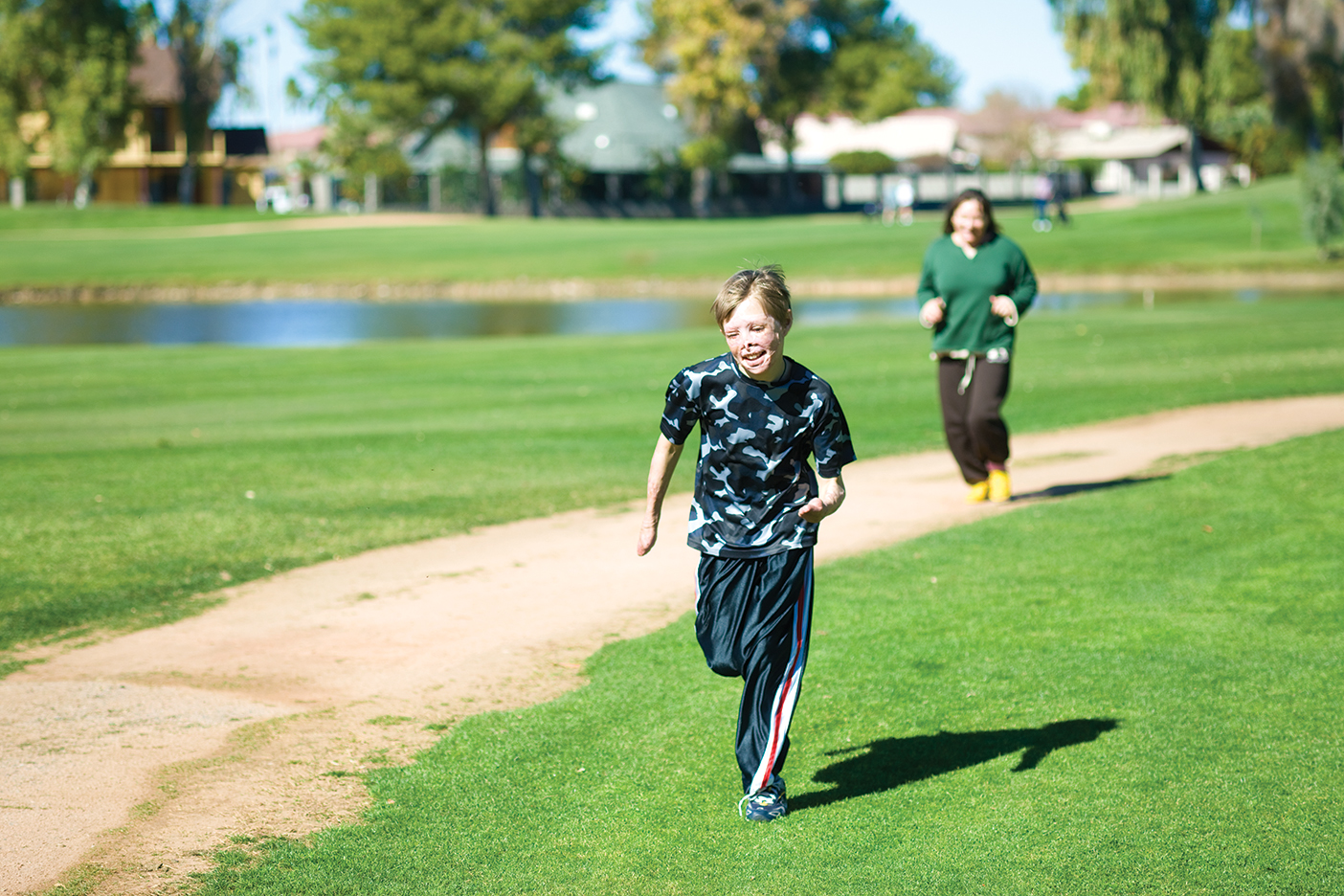
Seeing Beyond Scars
As part of the internship, BYU students spent at least six hours a day working with children in the orphanage. But rather than going home after fulfilling their responsibilities, Free and Ludlow started spending their spare time, often three or more hours, with Marius. They brought balloons, music, coloring books, and anything else they thought might entertain him. After two weeks of daily visits, Marius, who was initially quiet and guarded when they came, opened up, calling the girls by name for the first time.
In the weeks that followed, Ludlow and Free came to know and love the boy behind the burns. They saw the playful boy who asked for a balloon by saying “ugly please” instead of “pretty please,” testing their Romanian comprehension. They saw the compassionate boy who asked them to give his balloon to 5-year-old Gabriel, a hospital roommate who also had burns over most of his body. They saw the momma’s boy who, on Romania’s Mother’s Day, asked them to take a flower down the hall, where he believed his parents were being treated. His aunt told him that they had been transferred.
They also saw the boy in pain and often found themselves begging nurses to give him additional medication. They saw the lonely boy who kept his mother’s cell phone by his side so he could call Ionut. They saw the sensitive boy who cried when a group of boys stuck out their tongues at him. Ludlow told him to tell the kids next time he saw them that he had two girlfriends. He giggled—and remembered. He still calls Ludlow and Free his girlfriends.
The students, initially drawn to Marius because of his scars, now saw the boy beneath. And as they developed an almost maternal bond with him, their commitment to helping him increased. “Initially, we felt pity for him, but it quickly became a love and urgency,” Ludlow says. “We realized he’s more than just a sad story: he’s a real little boy.”
Groving up in Romania, Marius was known for his optimism and cheer. These qualities have buoyed himself and his surrogate families as he has undergone a series of reconstructive surgeries in the United States.
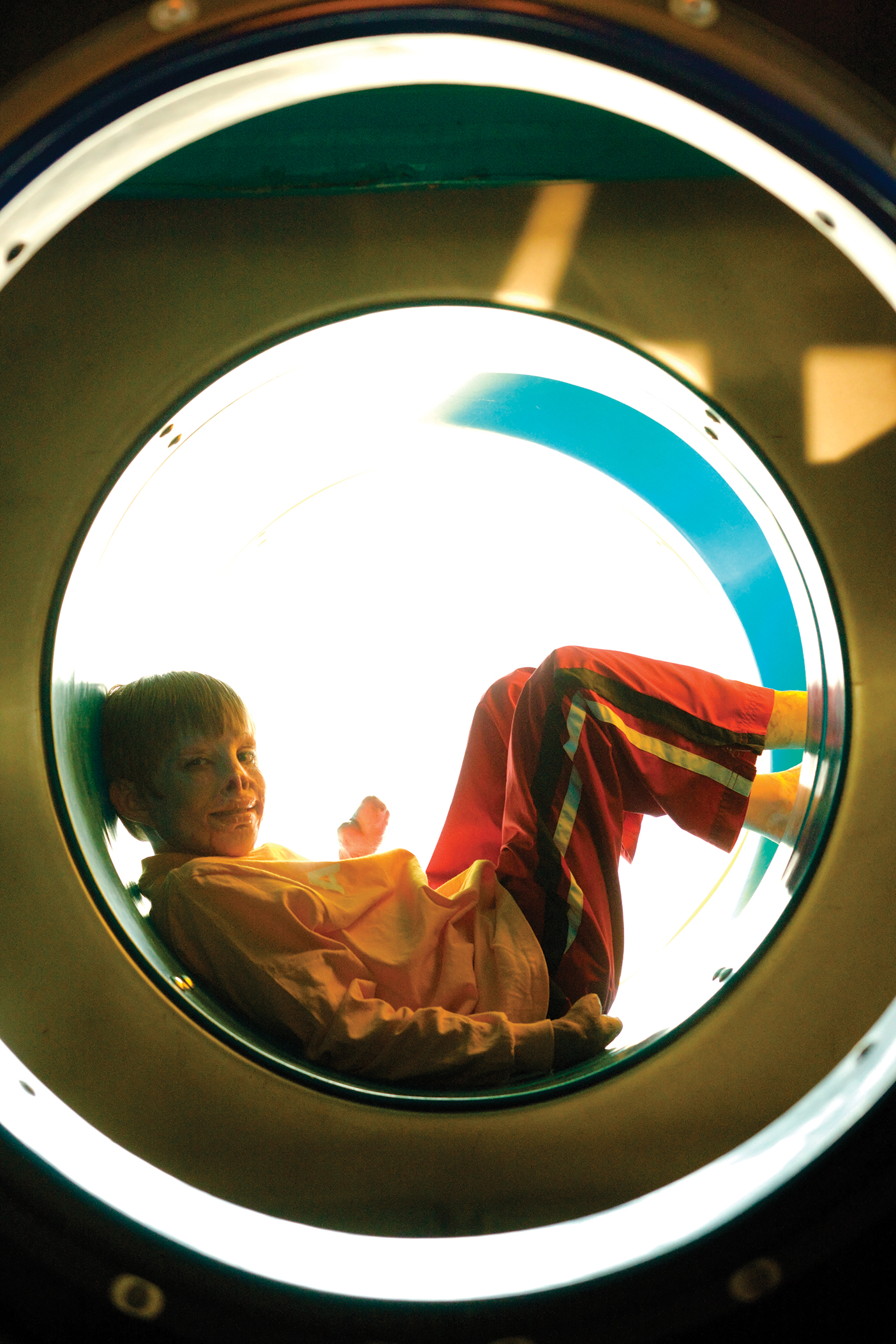
Tackling Challenges
With this sense of love and urgency, though, came more work and challenges than they or other Team Marius members had anticipated.
With the help of Teodora Racoveanu, a psychopedagogist at the orphanage who volunteered to serve as an interpreter and team member, Free and Ludlow began gathering medical information and photos to provide to potential doctors in the United States. This turned out to be the easy part. In March the Shriners Hospital in Los Angeles agreed to accept Marius as a patient and to pay for his treatment.
More difficult for team members in both the United States and Romania, including a Romanian attorney who worked with the team pro bono, were custody and visa issues. To leave Romania, Marius would need to be accompanied by his legal guardian. However, because his parents were dead, he was considered a ward of the state. Ionut, excited about the possibility of better treatment for Marius, began the months-long process of applying for custody of his brother so he could take him to the United States.
Team members also worked to raise money to help cover travel, visa, and living expenses for the boys—mailing out hundreds of letters and setting up a Team Marius Web site. By the end of 2008, more than 400 donors from 22 states and three countries would contribute nearly $40,000 to support the efforts.
By April 2008 team members were growing confident that Marius would be able to come to the United States. But with custody and visa issues not yet resolved, Ludlow and Free finished their internship and had to say goodbye.
On the morning before Ludlow and Free left Romania, Marius’ aunt finally told him that his parents were dead. He refused to eat or drink for most of the day, and Ludlow spent most of her time with him rubbing his back while he cried. Before she left, Ludlow showed Marius pictures of her family so he could see people he would meet in America. He pointed to a picture of her older brother, who had been killed in an accident three years before, and asked who he was. With her limited Romanian language ability, Ludlow didn’t know how to say that he had died, but she told Marius that he was in heaven with God and Marius’ parents.
With concern in his eyes, Marius asked Ludlow if she was OK.
“I said I was OK because I knew my brother was with God and that he probably had lots of friends there, [including Marius’] parents. He seemed to be really at peace after that.”
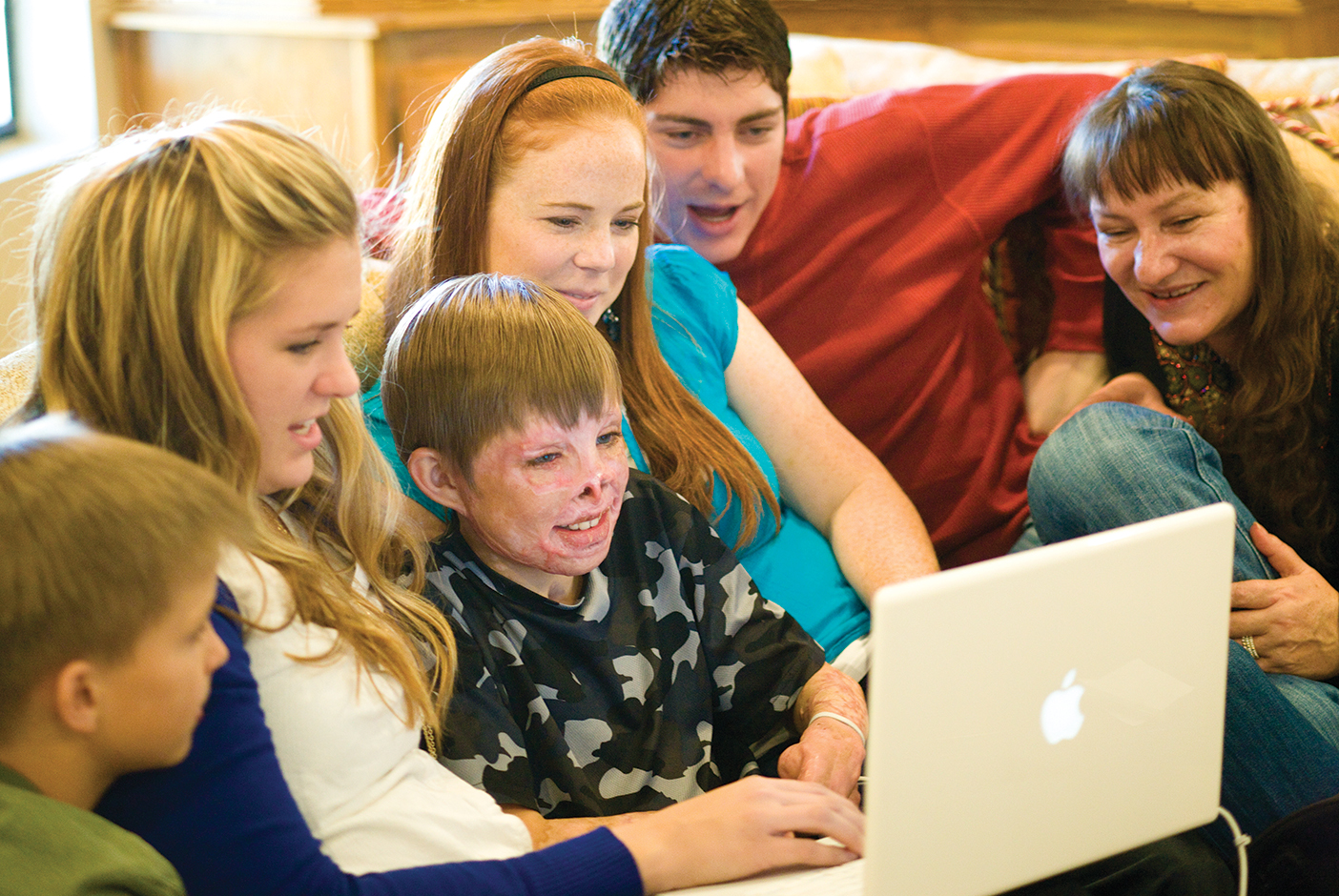
New Life
In the next four months, after tireless efforts by Racoveanu, a new crop of BYU interns in Romania, and team members in the United States, Ionut obtained custody over Marius and the two were awarded visas. On Aug. 4 Marius left the hospital where he had been bedridden for eight months and boarded a plane bound for America, accompanied by Ionut and Racoveanu. Marius was giddy.
“Even when we were in the airplane, he said several times that he couldn’t believe that we were going there,” says Racoveanu, who used her month’s vacation so she could translate for Marius and Ionut as they settled in. “A whole new life was opening in front of Marius. He started to see his future from a completely different perspective.”
While staying with the Ludlow family in Southern California in the days that followed, Marius—joined by Free, Ludlow, and their families—petted dolphins at SeaWorld, built sand castles at the beach, and rode roller coasters and watched parades at Disneyland. He bounced on a trampoline, rode a horse, and played with water balloons.
Just four days after he arrived, team members drove Marius to the hospital in Los Angeles for his first appointment. On the way, someone asked him if he was happy. His answer is fixed in the memory of Kristin Hulshoff Free (BS ’86), Jessica’s mother.
“How can I not be happy?” he asked simply. “I have people who love me. I’m going to get fixed. I’m not in the hospital anymore. I’m living in a home.”
Marius’ optimism and gratitude continue to inspire Free, Ludlow, and their families. Between surgeries Marius lives with the Frees in Arizona, where he began attending school full-time in January. Now able to walk with only a slight limp, he loves doing karate, swimming, playing with other children, and playing his Nintendo DS, which he has mastered by deftly maneuvering his hands.
He’s still a tease and even sometimes jokes about what he doesn’t have. During a visit to see the Ludlow family in San Diego, Marius, leaning over the kitchen table, explains to Lynne Woodward, Ludlow’s mom, that he can’t put away his shoes because “no have fingers.”
“Oh, what happened?” Woodward asks, humoring him.
“Hungry,” he says matter-of-factly, holding his hands up to his mouth.
But dealing with his scars is not always so easy. At a movie theater, children, and even some adults, whisper and stare at Marius as he walks to his seat. He has seen the stares before, heard the whispers, but this time they get to him. On the drive home he cries, telling Woodward, “The kids don’t like me—they think I’m a monster.”
But Ludlow says that, despite occasional heartache, Marius’ resilience triumphs. “He recognizes how much people love him, and that’s what keeps his spirits up,” she says.
And the promise of his reconstructive surgeries also comforts him. A team of doctors will perform, on average, three to four major cosmetic and orthopedic surgeries a year for the next eight years on Marius’ face, arms, hands, and legs. In his first surgery, last October, doctors grafted skin from behind his ears to create new eyelids for Marius so he would be able to close his eyes. Eventually, two toes from each of his feet will be removed to create fingers for his hands.
“In Romania Marius would have this question, ‘Why me? Why don’t I have fingers? Why can’t I play with the other kids?’” says Ionut. “But now he’s so happy because he has so many opportunities.”

Giving Love
Though Marius likely doesn’t yet fully understand the magnitude of the efforts made on his behalf, he does know this: “Everybody loves me.”
And Marius, it seems, loves everybody right back. He learned to say “I love you” soon after arriving in America, and he says it often: to Kristin Free and her husband, Dave (BS ’86), whom he calls Mom and Dad; and to Lynne Woodward and her husband, Paul, whom he calls Grandma and Grandpa. He especially loves to say it to his girlfriends.
Sitting on Ludlow’s lap late one evening, wearing the Spider-Man pajamas she picked out for him, Marius tickles her as she playfully resists.
He pauses and asks her, “What does te iubesc [I love you] mean?”
She tickles him back and tells him he knows what it means.
“No, I don’t,” he prods. “What does it mean?”
“I love you,” she responds.
He turns around and hugs her. “Thank you,” he says. “I love you too.”
[Editor’s Note: This article has been updated to give more information on the cause of the fire in which Marius was burned.]
